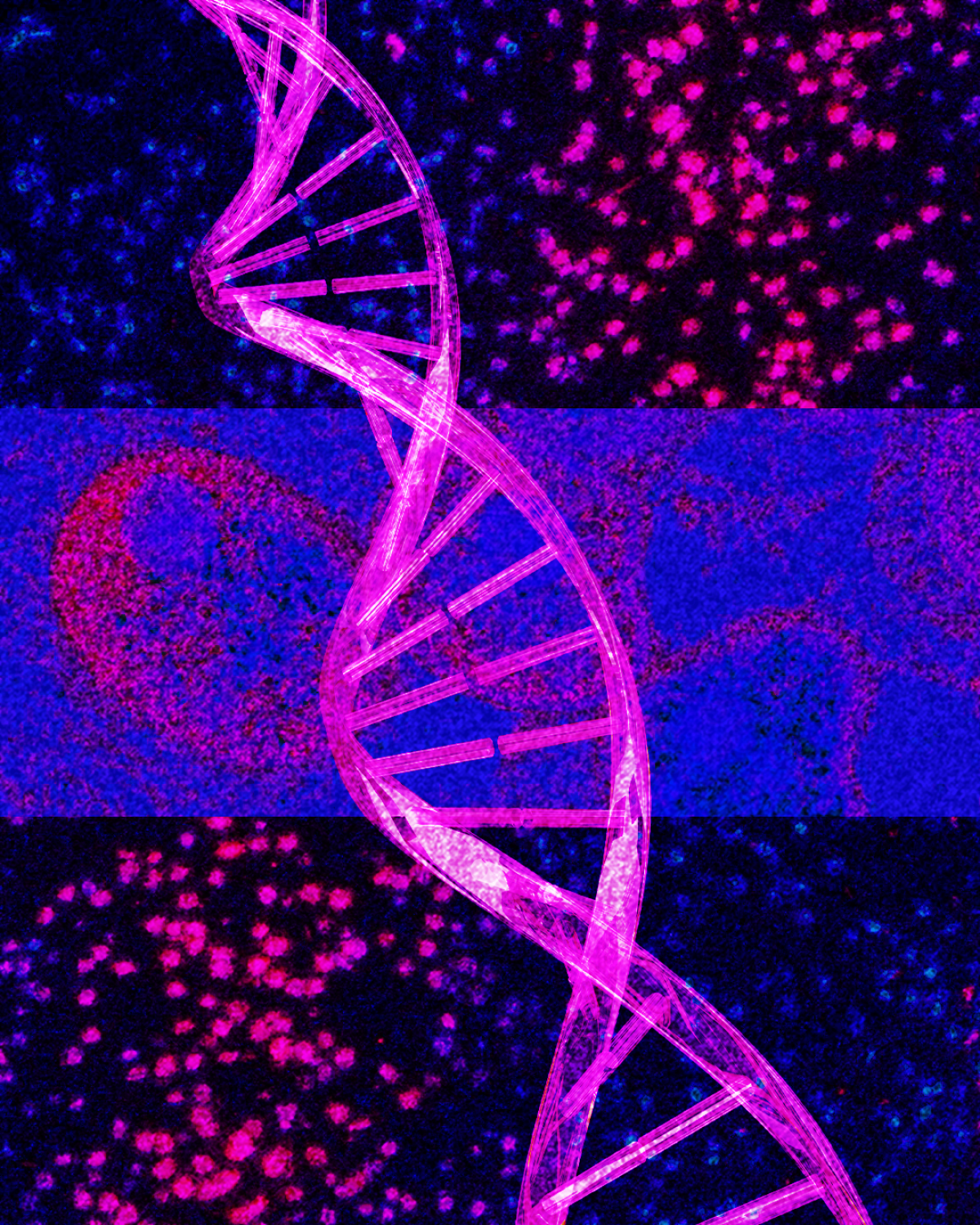Column: What happens when Latinos don’t know our medical history?

Periodically, the Latinx Files will feature a guest writer. This week, we’ve asked De Los contributing columnist Alex Zaragoza to fill in. If you are not subscribed to our weekly newsletter, you can do so here.
My bare boobs were splayed out on the exam table, chilled by gusts of conditioned air, as I received a breast exam from a new doctor at City of Hope hospital. She pressed her fingers into my breasts and then into my armpits, as she made small talk to, I assume, keep me comfortable. I laid there, invoking the disposition of a leathery old French man roasting to a deep-orange char under a blazing sun to make myself stay calm.
I was nervous, however, because when a doctor refers you to a medical facility that specializes in cancer treatments, fear kicks into your gut. Even more so when you’ve lost a loved one to the disease and have seen firsthand the horrifying things it can do to the body.
At six months shy of my 40th birthday, the time had come for breast cancer screenings, per the American Breast Cancer Society’s recommendations. With age comes the reality of your body slowly betraying you. The same hips and lower back that helped me climb speakers at concerts now jolt with pain when I have to pick anything up off the floor.
I’ve been anxiously warding off the ultimate betrayal for more than 14 years now by (mostly) quitting smoking, eating organic foods and very little red meat, regularly exercising and getting checkups whenever possible.
As it goes anytime I see a new doctor, I was asked a long list of medical questions which include my family history. And as always, I let them know my dad died of cancer. I’m not sure what kind of cancer it was. He’d gone in for severe pain in his leg, which turned out to be bone cancer, and upon further testing we learned the disease had already spread to several organs.
You’re reading Latinx Files
Fidel Martinez delves into the latest stories that capture the multitudes within the American Latinx community.
You may occasionally receive promotional content from the Los Angeles Times.
It metastasized even further from there, going to his brain and covering his body in tumors. At one point, a golf-ball-sized tumor erupted on his eyelid, forcing doctors to cut it off and sew his eye shut. And it kept getting worse. He was diagnosed in May 2009, and died that December. How that disease ravaged his body so ruthlessly and swiftly haunts me forever.
When it comes to other family members, I have no clue. I’ve asked my mom if anyone on her side had cancer, but she doesn’t know. Those were things de que no se hablaban. I don’t have a relationship with most of my dad’s side of the family anymore, but back when he was alive we asked if anyone else on their side had ever had cancer. There was maybe a tia, but nobody could answer for certain because, again, it was kept secret or not shared with the family.
My doctor quietly nodded as I rattled on anxiously, boobs out, making it clear I lived with a fear of the disease.
Anyone who has lost a family member to cancer knows this fear, where suddenly you’re spiraling over every funny looking mole and ache in your body.
After my dad’s death, I became somewhat neurotic about my health, seeing doctors on a regular basis. Especially after lapses in insurance that left me unable to see the doctor for months or even years at a time, just one of the many, many failures of the U.S. healthcare system. And as it goes, it’s Black and Latine people who suffer most.
Even with all my attention to prevention, I’ve always felt impotent because there’s important information I just can’t provide to doctors.
According to the American Heart Assn., Latinos, immigrants in particular, rarely discuss or record family health histories as a result of cultural influences, including stigmas, family dynamics and fear. This creates massive barriers to care that can mean the difference between life and death, especially when we know genetics play a large factor in our health — doctors won’t test patients for certain diseases if there’s no apparent threat or genetic history of a specific illness.
Often, it’s insurance companies blocking them from doing so, delaying or straight up denying necessary patient care. I’ve been told by friends in the medical community to lie to my doctors about family history if I want to be tested for stuff.
When my sister found out through genetic testing during her pregnancy that she was a carrier for cystic fibrosis, I asked my doctor to test me, but he refused unless I was actively trying to get pregnant. So I lied. I didn’t even have a boyfriend at the time, but I assured him that my partner (for the purposes of selling the story, I imagined him to be actor Adam Brody) and I were trying.
That’s how I learned that I, too, am a carrier for the disease, which is important information to have now that I am actually trying to start a family. To this day I’ll never forget what could have happened to me, my beautiful husband Adam Brody and our son Emilio had I not lied and gotten tested.
When my sister and I told our mom we’re both carriers and asked if anyone in the family had cystic fibrosis, she got defensive. “Noooo! Nosotros no fuimos!” she said as if she’d been wrongly accused of stealing a car. Homegirl, there’s nothing you can do to prevent this! We just need to know!
So when, during my breast exam, my new doctor at City of Hope asked if I’d be interested in a medical study for cancer research, I perked up. She explained what it would entail, what type of data the research was gathering and that I would be provided all the genetic information that could help me and my family learn if we have a genetic disposition for cancer and other diseases. It was a lot to take in while my nipples were still exposed to the room’s elements.
I had my concerns but said I was willing to hear more about it. By the time I got to my car, I was already being called by a nurse to discuss the study and my participation in it.
After thinking about it for several days, and after reading through the paperwork that was sent to me, I decided to do it. I’m still anxious about it and am scared of any possible harm that could come of it, but my fear of not knowing my family’s genetic dangers won out. I’m willing to be a lab rat if it means my family can answer medical questions that could save their lives, and perhaps whatever researchers learn from me can help others as well.
Maybe I can live a bit more peacefully if I know what’s happening inside me, and thus be better informed in my medical and life decision making. Worst case scenario, I’m hoping my story becomes a tragic, yet hilarious film starring Aubrey Plaza in her most ambitious role to date. While the latter sounds cool as hell, and would undoubtedly earn Aubrey Plaza a much-deserved Oscar, I’m hoping for a better outcome.
Consider subscribing to the Los Angeles Times
Your support helps us deliver the news that matters most. Become a subscriber.

Things we read this week that we think you should read
Hector Becerra named managing editor of The Times
Hector Becerra, a veteran Times journalist and a native of Los Angeles, becomes the highest ranking Latino editor in the paper’s history.
Octavio Solis had taken on an impossible task. Could he, the mighty Mexican American playwright from El Paso, adapt Miguel de Cervantes’ tome when others have failed?
A massacre that killed 6 reveals the treacherous world of illegal pot in SoCal deserts
Six people were shot to death last week in a desert community in San Bernardino County. The proliferation of illegal marijuana grows across California in recent years is leading to increasing violence, experts say.
This ‘Top 100’ best chef wants Guatemala to get back to its Indigenous roots
Guatemala’s Debora Fadul, one of the “Top 100” world’s best chefs, is on a mission to showcase Indigenous produce and farmers in a country where racism and discrimination persist.
The Latinx experience chronicled
Get the Latinx Files newsletter for stories that capture the multitudes within our communities.
You may occasionally receive promotional content from the Los Angeles Times.



